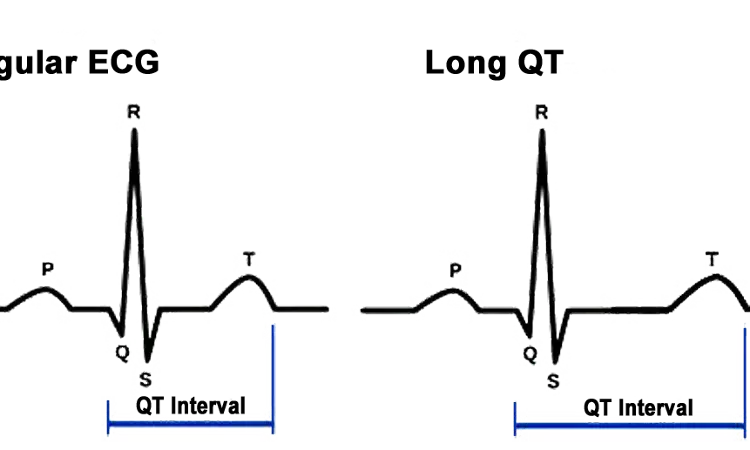- Home
- Medical news & Guidelines
- Anesthesiology
- Cardiology and CTVS
- Critical Care
- Dentistry
- Dermatology
- Diabetes and Endocrinology
- ENT
- Gastroenterology
- Medicine
- Nephrology
- Neurology
- Obstretics-Gynaecology
- Oncology
- Ophthalmology
- Orthopaedics
- Pediatrics-Neonatology
- Psychiatry
- Pulmonology
- Radiology
- Surgery
- Urology
- Laboratory Medicine
- Diet
- Nursing
- Paramedical
- Physiotherapy
- Health news
- Fact Check
- Bone Health Fact Check
- Brain Health Fact Check
- Cancer Related Fact Check
- Child Care Fact Check
- Dental and oral health fact check
- Diabetes and metabolic health fact check
- Diet and Nutrition Fact Check
- Eye and ENT Care Fact Check
- Fitness fact check
- Gut health fact check
- Heart health fact check
- Kidney health fact check
- Medical education fact check
- Men's health fact check
- Respiratory fact check
- Skin and hair care fact check
- Vaccine and Immunization fact check
- Women's health fact check
- AYUSH
- State News
- Andaman and Nicobar Islands
- Andhra Pradesh
- Arunachal Pradesh
- Assam
- Bihar
- Chandigarh
- Chattisgarh
- Dadra and Nagar Haveli
- Daman and Diu
- Delhi
- Goa
- Gujarat
- Haryana
- Himachal Pradesh
- Jammu & Kashmir
- Jharkhand
- Karnataka
- Kerala
- Ladakh
- Lakshadweep
- Madhya Pradesh
- Maharashtra
- Manipur
- Meghalaya
- Mizoram
- Nagaland
- Odisha
- Puducherry
- Punjab
- Rajasthan
- Sikkim
- Tamil Nadu
- Telangana
- Tripura
- Uttar Pradesh
- Uttrakhand
- West Bengal
- Medical Education
- Industry
ICD implantation in patients with long QT syndrome reduces all cause mortality: Study

Implantable Cardioverter-Defibrillators (ICD) implantation beneficial in patients with high-risk LQTS, according to a recent study published in the Journal of the American College of Cardiology.
The effectiveness of implantable cardioverter-defibrillators (ICDs) on reducing mortality has not been well studied in patients with long QT syndrome (LQTS).
This study aimed to assess the survival benefits of ICDs in the overall LQTS population and in subgroups defined by ICD indications.
This study included 3,035 patients (597 with ICD) from the Rochester LQTS Registry with a QTc ≥470 milliseconds or confirmed LQTS mutation. Using multivariable Cox proportional hazards models, the risk of all-cause mortality, all-cause mortality before age 50 years, and sudden cardiac death (SCD) were estimated as functions of time-dependent ICD therapy. Indication subgroups examined included patients with: 1) nonfatal cardiac arrest; 2) syncope while on beta-blockers; and 3) a QTc ≥500 milliseconds and syncope while off beta-blockers.
The Results of the study are as follows:
During the 118,837 person-years of follow-up, 389 patients died (137 before age 50 years, and 116 experienced SCD). In the entire population, patients with ICDs had a lower risk of death (HR: 0.54; 95% CI: 0.34-0.86), death before age 50 years (HR: 0.29; 95% CI: 0.14-0.61), and SCD (HR: 0.22; 95% CI: 0.09-0.55) than patients without ICDs did. Patients with ICDs also had a lower risk of mortality among the 3 indication subgroups (HR: 0.14; 95% CI: 0.06-0.34; HR: 0.27; 95% CI: 0.10-0.72; and HR: 0.42; 95% CI: 0.19-0.96, respectively).
Thus, the researchers concluded that ICD therapy was associated with a lower risk of all-cause mortality, all-cause mortality before age 50 years, and SCD in the LQTS population, as wells as with a lower risk of all-cause mortality in indication subgroups. This study provides evidence supporting ICD implantation in patients with high-risk LQTS.
Reference:
Effectiveness of Implantable Cardioverter-Defibrillators to Reduce Mortality in Patients with Long QT Syndrome Meng Wang, et al. published in the Journal of the American College of Cardiology.
https://www.jacc.org/doi/10.
Dr. Shravani Dali has completed her BDS from Pravara institute of medical sciences, loni. Following which she extensively worked in the healthcare sector for 2+ years. She has been actively involved in writing blogs in field of health and wellness. Currently she is pursuing her Masters of public health-health administration from Tata institute of social sciences. She can be contacted at editorial@medicaldialogues.in.
Dr Kamal Kant Kohli-MBBS, DTCD- a chest specialist with more than 30 years of practice and a flair for writing clinical articles, Dr Kamal Kant Kohli joined Medical Dialogues as a Chief Editor of Medical News. Besides writing articles, as an editor, he proofreads and verifies all the medical content published on Medical Dialogues including those coming from journals, studies,medical conferences,guidelines etc. Email: drkohli@medicaldialogues.in. Contact no. 011-43720751


